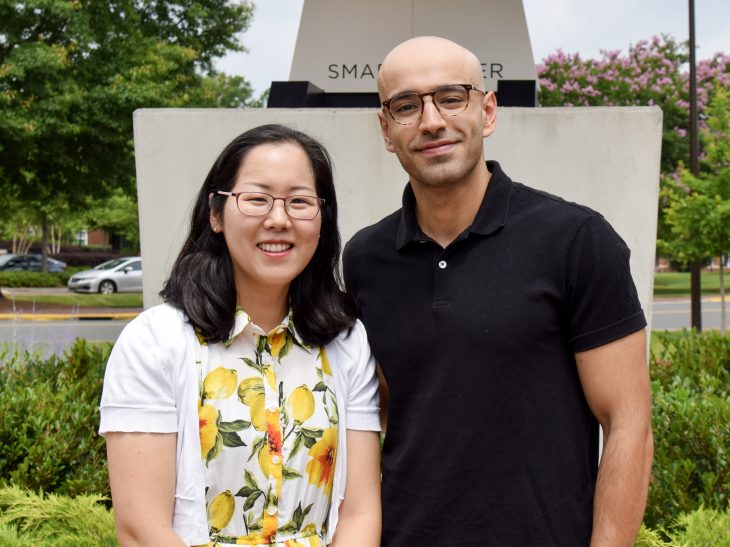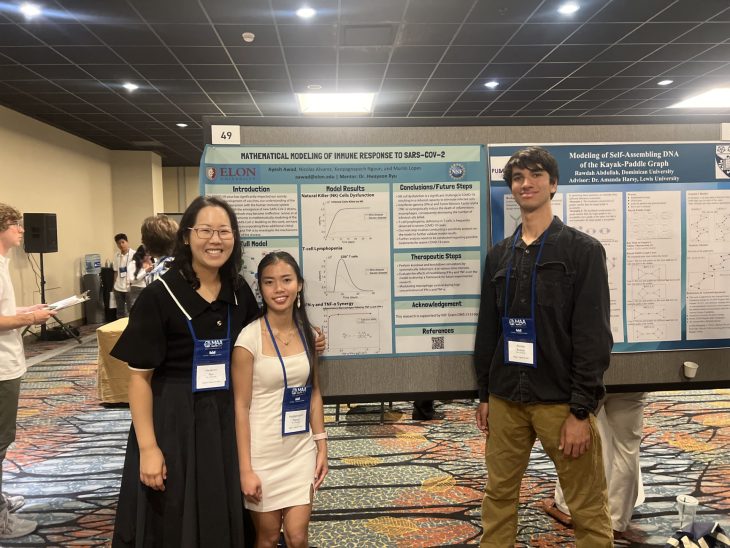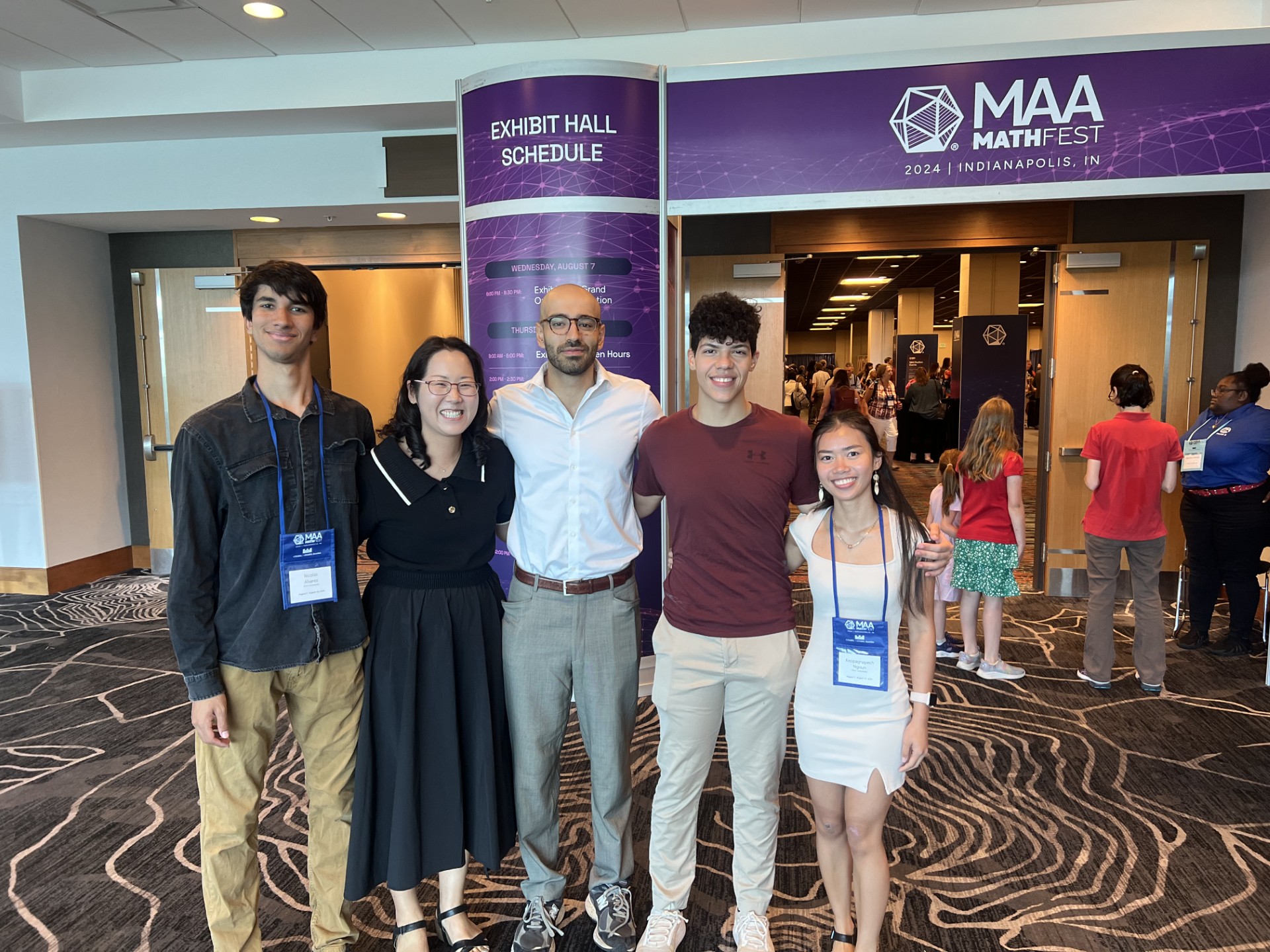With team members hailing from Jordan, Cambodia, Brazil and Colombia, their collaboration showcased the power of global perspectives in solving complex problems.
A team of undergraduate researchers was recognized for excellence at the 2024 Mathematical Association of America (MAA) MathFest conference in Indianapolis, Indiana this summer.
Elon students Pagnapech “Pech” Ngoun ’26, Murilo Ferreira Lopes ’27 and Nicolas Alvarez ’27, with alumnus Ayesh Awad ’24, presented their mathematical modeling research and were recognized with the Janet L. Andersen Award for Undergraduate Research in Mathematical or Computational Biology. Their poster was also selected as an Outstanding Poster among nearly 100 presented at the conference, which was held Aug. 7 to 10.

Under the mentorship of Associate Professor of Mathematics Hwayeon Ryu, the group dedicated their summer to research in computational biology, contributing to a National Science Foundation-funded project on COVID-19 mathematical modeling. The team’s work focused on developing mathematical models that simulate the immune system’s response to the virus, providing insights into disease progression and potential treatment strategies. This ongoing research aims to further the understanding of how mathematical models can be used to predict virus behavior and assist in medical interventions.
What made the team stand out wasn’t just their technical expertise but the unique blend of perspectives they brought to their work.
“The diversity of backgrounds, experiences and academic disciplines in this group truly reflects Elon’s commitment to fostering inclusive environments,” Ryu said.
Ngoun is majoring in engineering, Alvarez in engineering and mathematics, and Lopes in computer science. Awad graduated in spring 2024 with a degree in engineering with a biomedical concentration. With team members hailing from Jordan, Cambodia, Brazil and Colombia, their collaboration showcased the power of global perspectives in solving complex problems. Additionally, Ngoun and Ferreira Lopes are scholars in the Odyssey Program. Awad, who led the research group, noted how the team dynamic played a crucial role in their success.
“This award happened because of the amazing work done by Murilo, Nicolas and Pech during the 2024 Summer Undergraduate Research Experience and supported by Dr. Ryu’s NSF grant. They stayed motivated, organized, and thorough throughout the project,” Awad said. “As the research lead, I set weekly expectations, ensured we stayed on track, answered technical questions and worked on coding, model development and writing for the project.”

Awad, who will work at the University of North Carolina Chapel Hill as a research technician in a computational biology lab, said the project contributed to his long-term goals of joining a doctoral program in computational biology or biomathematics.
For Lopes, the experience of working on the COVID-19 model was both challenging and rewarding.
“It took a lot of hard work, problem-solving and constructive discussions, but seeing the model produce meaningful results was an amazing experience,” Lopes said. “Attending MAA and presenting alongside so many scholars was truly enlightening and made me eager to explore more branches of mathematics.”
“We can influence more than just the scope of our majors,” said Alvarez on the interdisciplinary research. “It has personally influenced where I want to apply my engineering and math skills in the future.”
Ngoun said the experience was eye-opening.
“Before this summer, I knew very little about the biology behind COVID-19,” Ngoun said. “Now, I feel confident in understanding complex biological terminologies, the dynamics of the immune system, and how to model proteins and immune cells within our body. What makes this research so special to me is the sense of discovery we’ve shared as a team.”



